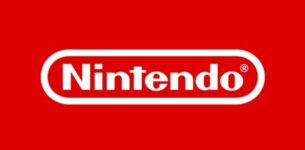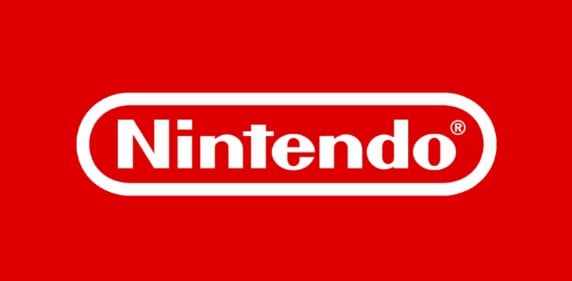
‘Modded Hardware’ Defendant Denies Nintendo’s Copyright Claims in Court * TorrentFreak
Home > Lawsuits > Apps and Sites >
The alleged operator of Modded Hardware has filed an answer to Nintendo’s copyright complaint, denying any wrongdoing. The defendant, who represents himself in court, counters with a long list of affirmative defenses including fair use. The case will now move forward to the discovery process. Meanwhile, the Modded Hardware site has gone private.
 Nintendo is doing everything in its power to stop the public from playing pirated games on the Switch console.
Nintendo is doing everything in its power to stop the public from playing pirated games on the Switch console.
The Japanese gaming company has won several lawsuits in recent history, including shutting down websites that distributed pirated ROMs.
Most notably, perhaps, was the criminal referral that resulted in the demise of the infamous hacking group Team-Xecuter. The group had previously released several ‘jailbreak’ hacks for gaming consoles and was widely regarded as Nintendo’s main nemesis.
With the win against Team-Xecuter, Nintendo hoped that the modding scene would fade into oblivion, but that’s not what happened. In recent years, new tools and hardware solutions were released, requiring Nintendo to step up its enforcement efforts once again.
For example, recently Nintendo went after various Switch piracy related tools, including the Yuzu emulator, Lockpick, and MIG Switch.
Nintendo vs. Modded Hardware
In June of this year, Nintendo filed additional lawsuits in U.S. courts to further intensify the crackdown. One of these complaints targets Modded Hardware and its alleged operator, Michigan-resident Ryan Daly, who’s also known under the alias “Homebrew Homie”.
Nintendo and Daly were no strangers at the time. In March, Nintendo threatened Daly with a lawsuit; both parties agreed that the allegedly unlawful activity, which includes selling MIG devices and modded consoles, would stop.
That didn’t happen, however, so Nintendo sued Daly at a federal court in Seattle instead.
Mod Chips, MIG Switch, and Pirated Games
In the complaint, Nintendo alleged that Modded Hardware sells several pieces of hardware that circumvent its piracy protections. These include Mod Chips and the “MIG Switch,” a memory card that allows people to play pirated copies of Nintendo Switch games on authentic consoles.

In addition to selling hardware hacks, the defendant also offered mail-in modding services and modded versions of Switch consoles, for the less technically inclined. These were reportedly loaded with pirated games, according to the complaint.
“Defendant not only offers the hardware and firmware to create and play pirated games, but he also provides his customers with copies of pirated Nintendo games,” the complaint reads.
“Typically, when a customer purchases a Hacked Console or the Circumvention Services, Defendant preinstalls on the console a portfolio of ready-to-play pirated games, including some of Nintendo’s most popular titles such as its Super Mario, The Legend of Zelda, and Metroid games.”
Overall, Nintendo alleges that Modded Hardware trafficked in circumvention devices by selling mod-chips and MIG devices. That violates the DMCA, for which Nintendo demands damages. In addition, the gaming company seeks damages for direct and contributory copyright infringement, accusing the defendant of adding pirated games to consoles.
Modded Hardware Denies any Wrongdoing
This week, Ryan Daly filed an answer to the complaint. The alleged Modded Hardware operator goes up against Nintendo without an attorney and denies any wrongdoing. This includes the claim that Daly is the owns and operates the Modded Hardware business.

The answer doesn’t include much substance. It mostly repeats Nintendo’s claims, simply responding with the word “denied”. In response to more general allegations, Daly replies that he lacks “sufficient information to either admit or deny the allegations,” which are therefore denied as well.

These types of responses are not uncommon in answers to a complaint. What is unusual, however, is that the defendant is not represented by a lawyer. Without making any inferences about the validity of Nintendo’s claims, it’s generally not easy for a ‘pro se‘ defendant to counter a seasoned team of Nintendo lawyers.
Fair Use and Other Defenses
In addition to the denials, Daly presents a list of seventeen affirmative defenses. These include fair use, invalid copyrights, a lack of standing, fraudulent inducement, an arbitration clause, failure to state a claim and unjust enrichment. The answer doesn’t elaborate on any of these defenses at this point.

Now that Daly has answered the complaint, the lawsuit can move forward to the discovery process. At this stage, both parties can gather evidence, which typically includes depositions, interrogatories, and requests for documents.
Whether the alleged Modded Hardware operator will continue solo isn’t entirely clear. Last month, Nintendo informed the court that it was in contact with the defendant’s attorney. It’s unknown what happened since, but it’s possible that Daly will seek legal assistance again in the future.
The Modded Hardware website, meanwhile, is no longer publicly available. It now requires a password to access.
—
A copy of Ryan Daly’s pro se answer to Nintendo’s complaint, filed at the U.S. District Court in Seattle, is available here (pdf)



